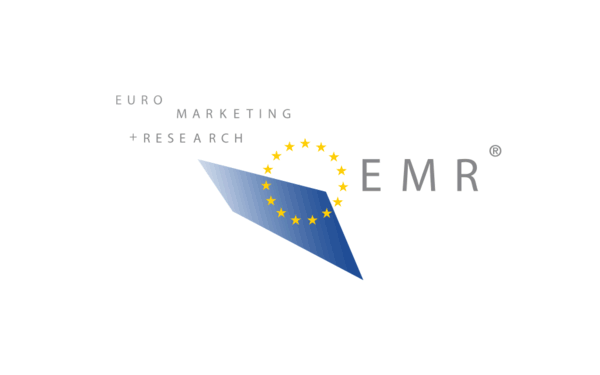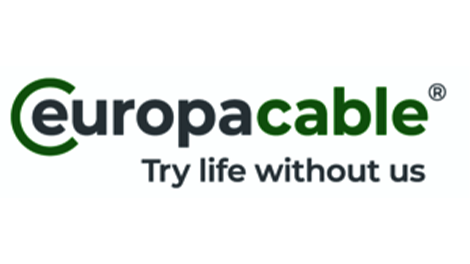Europacable – Europacable welcomes the European Parliament’s inclusion of aluminium in the Critical Raw Materials Act
Yesterday the European Parliament voted to include aluminium in the Strategic Raw Materials List of the Critical Raw Materials Act.
The Parliament’s move mirrors the decision taken by Member States in late June. This is the result of an advocacy campaign led by European Aluminium and other 11 industry associations, including Europacable targeting key Members of the European Parliament.
It is an important achievement for the European cable industry which will help it have access to a secure, diversified, affordable and sustainable supply chain. Aluminium is critical for cable manufacturers: 90% of distribution power cables and 70% of land transmission cables have an Aluminium conductor.
As for next steps, Europacable looks forward – together with its industry partners – to the start of trilogue negotiations among the European Parliament, the Spanish Presidency of the Council and the European Commission to confirm the inclusion of aluminium in the proposal.
SourceEuropacable
EMR Analysis
More information on Europacable: See the full profile on EMR Executive Services
More information on Christopher Guérin (President, Europacable + CEO, Nexans): See the full profile on EMR Executive Services
More information on The European Union: https://european-union.europa.eu/index_en + The European Union’s institutional set-up is unique and its decision-making system is constantly evolving. The 7 European institutions, 7 EU bodies and over 30 decentralised agencies are spread across the EU. They work together to address the common interests of the EU and European people.
In terms of administration, there are a further 20 EU agencies and organisations which carry out specific legal functions and 4 interinstitutional services which support the institutions.
All of these establishments have specific roles – from developing EU laws and policy-making to implementing policies and working on specialist areas, such as health, medicine, transport and the environment.
There are 4 main decision-making institutions which lead the EU’s administration. These institutions collectively provide the EU with policy direction and play different roles in the law-making process:
- the European Parliament (Brussels/Strasbourg/Luxembourg)
- the European Council (Brussels)
- the Council of the European Union (Brussels/Luxembourg)
- the European Commission (Brussels/Luxembourg/Representations across the EU)
Their work is complemented by other institutions and bodies, which include:
- the Court of Justice of the European Union (Luxembourg)
- the European Central Bank (Frankfurt)
- the European Court of Auditors (Luxembourg)
The EU institutions and bodies cooperate extensively with the network of EU agencies and organisations across the European Union. The primary function of these bodies and agencies is to translate policies into realities on the ground.
Around 60,000 EU civil servants and other staff serve the 450 million Europeans (and countless others around the world).
Currently, 27 countries are part of the EU: https://european-union.europa.eu/principles-countries-history/country-profiles_en
More information on The European Commission: https://ec.europa.eu/info/index_en + The Commission helps to shape the EU’s overall strategy, proposes new EU laws and policies, monitors their implementation and manages the EU budget. It also plays a significant role in supporting international development and delivering aid.
The Commission is steered by a group of 27 Commissioners, known as ‘the college’. Together they take decisions on the Commission’s political and strategic direction.
A new college of Commissioners is appointed every 5 years.
The Commission is organised into policy departments, known as Directorates-General (DGs), which are responsible for different policy areas. DGs develop, implement and manage EU policy, law, and funding programmes. In addition, service departments deal with particular administrative issues. Executive agencies manage programmes set up by the Commission.
Principal roles in law: The Commission proposes and implements laws which are in keeping with the objectives of the EU treaties. It encourages input from business and citizens in the law-making process and ensures laws are correctly implemented, evaluated and updated when needed.
The European Commission is the EU’s politically independent executive arm. It is alone responsible for drawing up proposals for new European legislation, and it implements the decisions of the European Parliament and the Council of the EU.
More information on Ursula von der Leyen (President, The European Commission): https://ec.europa.eu/commission/commissioners/2019-2024/president_en + https://www.linkedin.com/in/ursula-von-der-leyen/
More information on the ECRMA (European Critical Raw Materials Act): https://single-market-economy.ec.europa.eu/publications/european-critical-raw-materials-act_en + Proposal for a regulation of the European Parliament and of the Council establishing a framework for ensuring a secure and sustainable supply of critical raw materials and amending Regulations (EU) 168/2013, (EU) 2018/858, 2018/1724 and (EU) 2019/102.
The Critical Raw Materials Act was announced by President von der Leyen during her 2022 State of the Union speech, where she called to address the EU’s dependency on imported critical raw materials by diversifying and securing a domestic and sustainable supply of critical raw materials.
More information on European Aluminium: https://european-aluminium.eu/ + European Aluminium, founded in 1981 and based in Brussels, is a member-based industry association representing Europe’s most complete and thriving metals value chain.
Our 100+ members include primary aluminium producers; downstream manufacturers of extruded, rolled and cast aluminium; producers of recycled aluminium and national aluminium associations, representing more than 600 plants in 30 European countries.
More information on Paul Voss (Director General, European Aluminium): https://european-aluminium.eu/team/paul-voss/ + https://www.linkedin.com/in/paul-voss-43b34437/


